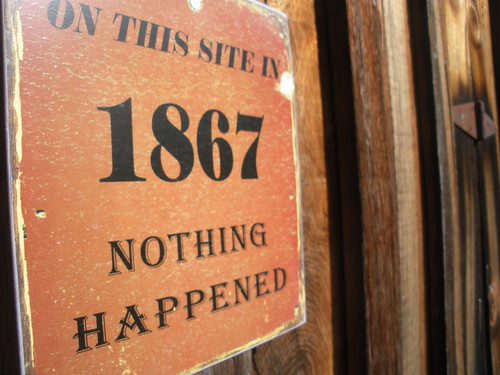There can be no daily democracy without daily citizenship.
– Ralph Nader
The son of one of the dean’s here at school was missing this week. Last night, he returned home, and everyone is safe.
After a friend e-mailed me the flier being circulated in conjunction with the search, I posted it to my Facebook page. I also posted it to the Facebook group for students at HGSE.
When I checked Facebook this morning, the post to my general Facebook wall had been shared 14 times in the night.
Each sharer (Is that the proper colloquialism?) was somehow connected to SLA. Former students, students I’d never taught, graduates from our first class, parents of my advisees, students’ friends from other schools – they all shared the post to their walls, though only one of them is near Boston.
It was a reminder of community and one of those infrequent signs that Facebook might be good for something.
I realize none of the people who passed the message along did any serious lifting beyond a couple clicks, but that’s another vote in favor of the virtual network.
The message moved quickly and didn’t require anyone to inconvenience themselves. This was a worry to someone they were connected to and the relative cost for adding their voices was null.
This could have and has had distinctly negative effects. Petitions, rumors and photos go viral in minutes, and attempts to rectify the wrongs take much more work and are largely ineffective.
In this instance, that wasn’t the case. The objective was to spread the word and help someone else. It happened.
Of similar interest was the fact no one in the HGSE group shared the flier to their walls. Ostensibly, they’re the group that had the most investment in the ordeal.
The temptation is to suggest weaker communal ties. I wonder if that’s it. Everyone I’ve met here is quite caring for one another, and I’ve witnessed their support first hand.
The possibility that comes to mind is perhaps the groups – SLA and HGSE – view the agency afforded by Facebook differently.
Without wading into the riptide of the digital native / digital immigrant debate, I wonder if it seems more natural for such an alert to be transmitted virtually for my SLA community while my HGSE community considers it to be a more physically-bound action. While both are caring and active communities, I could certainly see how the learning environment of SLA would differently shape a person’s paradigm of citizenship and what participatory culture looks like and can look like. It’s possible HGSE citizenship is analog while SLA citizenship blends the analog with the digital.
It seems to me citizenship should be both and the seams should be invisible.


